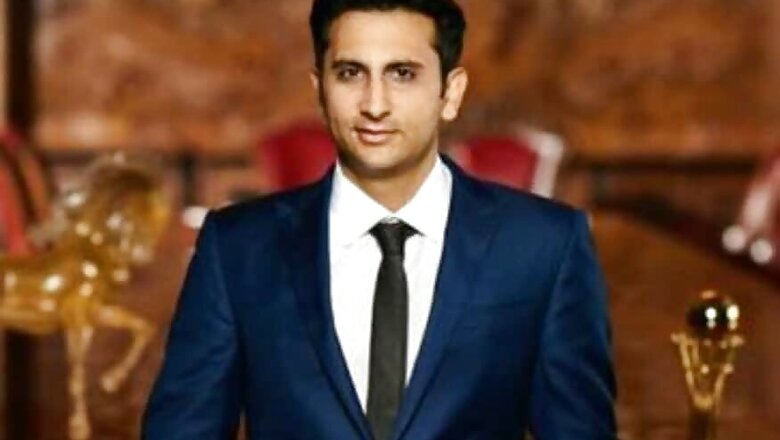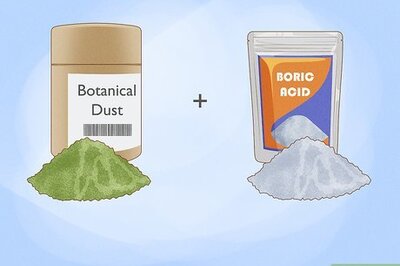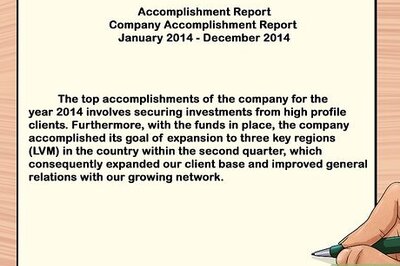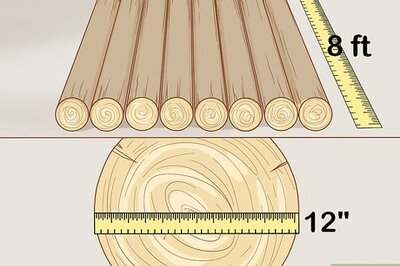
views
As the trials of Covid-19 vaccine being developed by AstraZeneca and Oxford University showed encouraging results, Serum Institute of India (SII) said that it will soon start manufacturing 700 million to 800 million doses of the vaccine. SII, the largest vaccine manufacturer in the world, has been chosen by Oxford and its partner AstraZeneca to manufacture the vaccine once it gets ready.
Adar Poonawalla, chief executive officer of the institute, spoke to CNN-News18 Executive Editor Zakka Jacob on the future of the vaccine and the company's plan on manufacture and distribution.
In terms of phase 3 trials you are hoping to start in a week or two from now and that will take a couple of months to complete. Where are you in terms of regulatory process? Have you apptoaced the DCGI and have they given you approvals? How long do you expect that process to last?
So within 48 hours we are submitting our DocA for granting permission for the phase 2 by the T-trial to DCGI and typically in a few weeks we should conclude all the design, type and all the other aspects of the trial. And then maybe two weeks after that; so in a month total from now we expect to go into actual trials in the hospital into patients.
How many people would be there in the phase 3 trials? Have the hospitals been identified?
We've got a lot of hospitals between Mumbai and Pune because this is where the incidents and population are the highest. From recruitment and disease angle it is perfect for the trial. And the size of the trials would be determined by the statisticians later. But it's going to be around a few thousand patients close to maybe 5,000.
If everything goes well, what does that mean that there was an Indian institute that was a part of the groundbreaking vaccine? What will it mean for you, your company anf for India?
We are making the vaccine from scratch. We are using only their technology. Its going to be a proud moment for any company in India and there are many other excellent companies that are going to be part of this. Vaccines have not been given their due importance, people has not understood its power; that only for a few dollars can save their life. This is very clear and evident now. Like in the West people have now understood that vaccines are the easiest way to protect oneself. India now has emerged as the leader of vaccine production.
I believe these trials have shown that the antibodies who took a single dose last for about 28 days and two months for those who took a double dose. What happens thereafter?
Most vaccines need two to three doses. First is the primer where you are sorta protected 50-60%. Your second dose gives you traditionally protection beyond 70-80%. We see it in all the other vaccines. Now in Covid-19, its going to be the same sort of situations. As all human beings are different, some may respond very well with just one shot but even those perform much better with the second shot. Then there are some people who just don't respond well enough with one shot and they need the second shot to come that minimum level. So what we found in this study was that 90% which is very high and good of the people vaccinated with one shot was good enough. It is only the balance 10 percent that needed the second shot which is a very good statistic if we look at the overall picture.
So basically what you're saying is that if we take two shots at best, there is no chance 6 month or a year down the line that you will contract covid-19 again?
Let me clarify. That is the hypothesis from phase 1. To prove this we need to wait for phase 3 and see. Because once you've vaccinated you need to wait for 2-3 months and see if they have got infected. That's the proof. That's what we are trying to establish by November.
One other thing that has come across from the trials is side effects. The vaccine cause side effects like fatigue, headache. Are you worried about the side effects?
No. Infact this is proven to be just on an average and on par with most other vaccines side effects where you have mal fever, headache and some swelling. There are no severe side effects to this vaccine which is also good news. I'm very sure safety is not going to be an issue.
Is there any collaboration with other vaccine manufacturers like covaccine, Zyrus Kerela 1?
We don't have any collaboration with other Indian companies. They are developing their own.
If the phase 3 trials ho awry or there are some issues with regulatory approvals, you would have lost $200 million?
Yes. That's an actual cash lost Serum Institute will bear. We took this decision that we need to rise to the occasion and take this risk.
It's not just about one vaccine, we know there are about half a dozen candidates who've shown successful steps so far. Is it also a race to be the first company to manufacture this?
No. Absolutely not. We want to make sure we don't rush so we make the best vaccine; safest and which gives you the longest term protection so you don't have to keep come back for a shot. That's why we bet on five other candidates as well. Almost every two months we plan to launch a new Covid vaccine. Starting with the Oxford product first because that's way ahead in the trials. That way we don't depend upon just one vaccine. And look I am quite sure more than one vaccine out of the five that we have chosen will be successful.
There is a dual immune response that was kicked off in the Oxford University trial which is both to rein in antibodies and T-cells response. Why is that important? And how is it giving hope that the vaccine can actually make a cut?
So if you compare to Chinese candidates and others, the Cancino one for example, the T-cell response is a way to demonstrate long-term immunity and memory response. So after the antibodies vain off in 3 months, you have to demonstrate that the body has the memory which our vaccine has shown to work, to give you that protection in the long term when you are under attack after a year or two. The T-cell response in the AstraZeneca Oxford product is very good. In fact, it is three to four times higher then Cancino which is the Chinese one.
By November your trials are complete, between this and vaccine hitting the market, how much time will be required?
It's probably gonna be December and for first quarter of 2021. Because to reach all the parts of the country, it is going to take some time. So once you make a product to have it tested yourself in your company and then it goes CDI which is the national release in Kasauli and after that only can a batch be released to the public. All that of course is being expedited. So if you put all this together realistically large volumes for India will be the first quarter. But a few million doses will be available to the more immunocompromised like the healthcare workers. We are planning to have that by December.
What kind of volumes are you looking at by the middle or end of next year?
Our capacity right now till we build a new facility is going to be about 700 to 800 million dozes annually. So if we look at the four months that we got here we could make around 300 millions by December. Typically, if this vaccine is going to be a two dose vaccine, realistically, it is going to be 3 to 4 years before everyone on the planet gets vaccinated to the fullest extent with two doses.

















Comments
0 comment